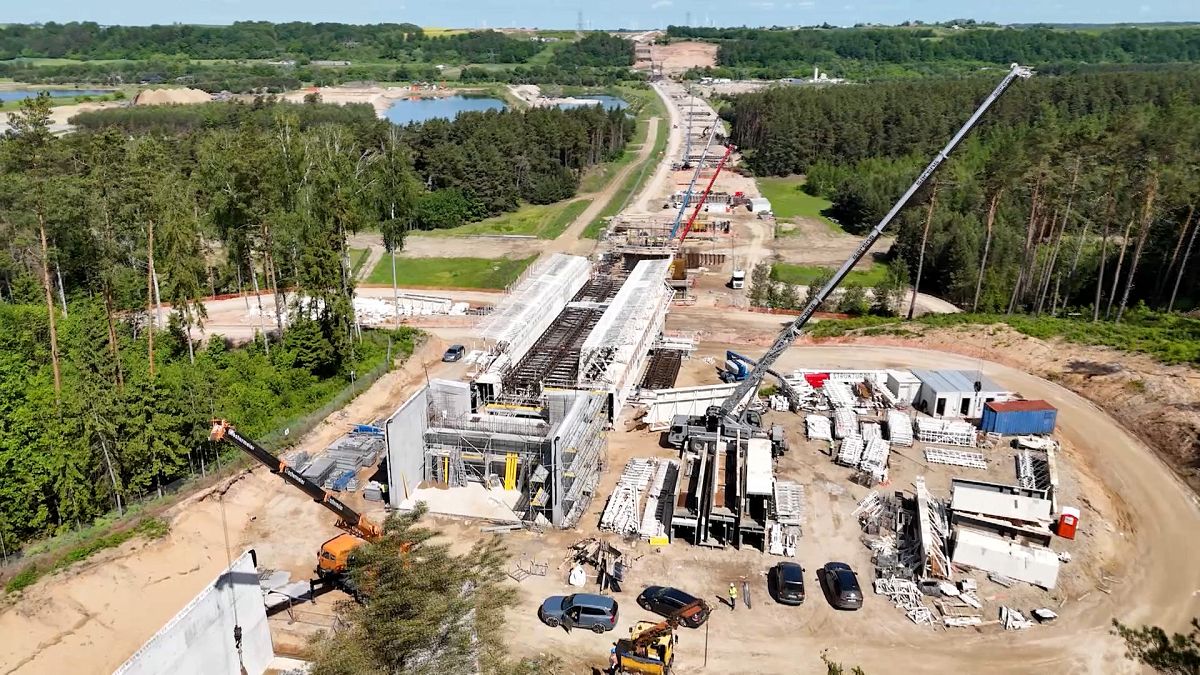

The world continues to witness a multitude of developments, ranging from infrastructure advancements to challenges posed by conflicts and natural disasters. In recent news, each facet presents both opportunities and obstacles requiring international attention and cooperation.
Amidst growing efforts to enhance connectivity and security, the construction of Rail Baltica stands out as a significant undertaking. Spanning 870 kilometers through Lithuania, Latvia, and Estonia, this railway is transitioning from the Russian broad gauge to the European standard gauge. Such a strategic alignment not only facilitates improved travel and trade within Europe but also offers potential military advantages, should the need arise. The European Union’s substantial investment in this project reflects a commitment to strengthening regional integration and defensive capabilities in the face of evolving security needs.
In another corner of Europe, unforeseen challenges have disrupted daily activities. Eurostar services between London and Paris have been severely affected due to incidents of cable theft and tragic track deaths in France. Consequently, passengers are being advised to postpone or cancel their travels until the situation stabilizes. This disruption highlights the critical nature of infrastructure security and the impact of criminal activities on public transportation services, reminding us of the interconnectedness of security and everyday convenience.
Meanwhile, the volatile dynamics in the Middle East continue to shape global discourse. A glimmer of hope appears as a fragile ceasefire between Iran and Israel manages to hold, despite ongoing tensions. This temporary peace has had a ripple effect on the economic front, with oil prices experiencing a modest rise. The financial markets have responded positively, reflecting cautious optimism about stability in the region. However, the situation remains delicate, necessitating vigilant diplomatic efforts to maintain and potentially build upon this ceasefire.
In the midst of geopolitical challenges, humanitarian efforts offer a ray of hope and solidarity. France and Indonesia have successfully evacuated their citizens stranded in conflict zones in Israel and Iran. Over 100 French citizens were flown to safety, while approximately 100 Indonesian nationals were repatriated. These operations underline the importance of international cooperation in safeguarding citizens during crises and the relentless dedication to human welfare even in the toughest of times.
Tragedy, however, is an unavoidable reality for many. In Sudan, the country’s ongoing civil war—recognized as the world’s largest humanitarian crisis—witnessed a grim episode with an attack on a hospital in West Kordofan. This incident claimed the lives of more than 40 civilians, including children and health workers, drawing condemnation from the World Health Organization. With blame unassigned, the attack underscores the dire humanitarian situation in Sudan, urging the international community to renew its efforts towards finding a peaceful resolution to this devastating conflict.
As the world continues to navigate through complex challenges, the balance of progress and adversity highlights the resilience and adaptability required. From infrastructure initiatives that promote unity and strength, to the urgent need for collective compassion in times of crisis, these stories serve as reminders of the interconnected nature of global events and the unyielding spirit of collaboration and hope.
Source: {link}
